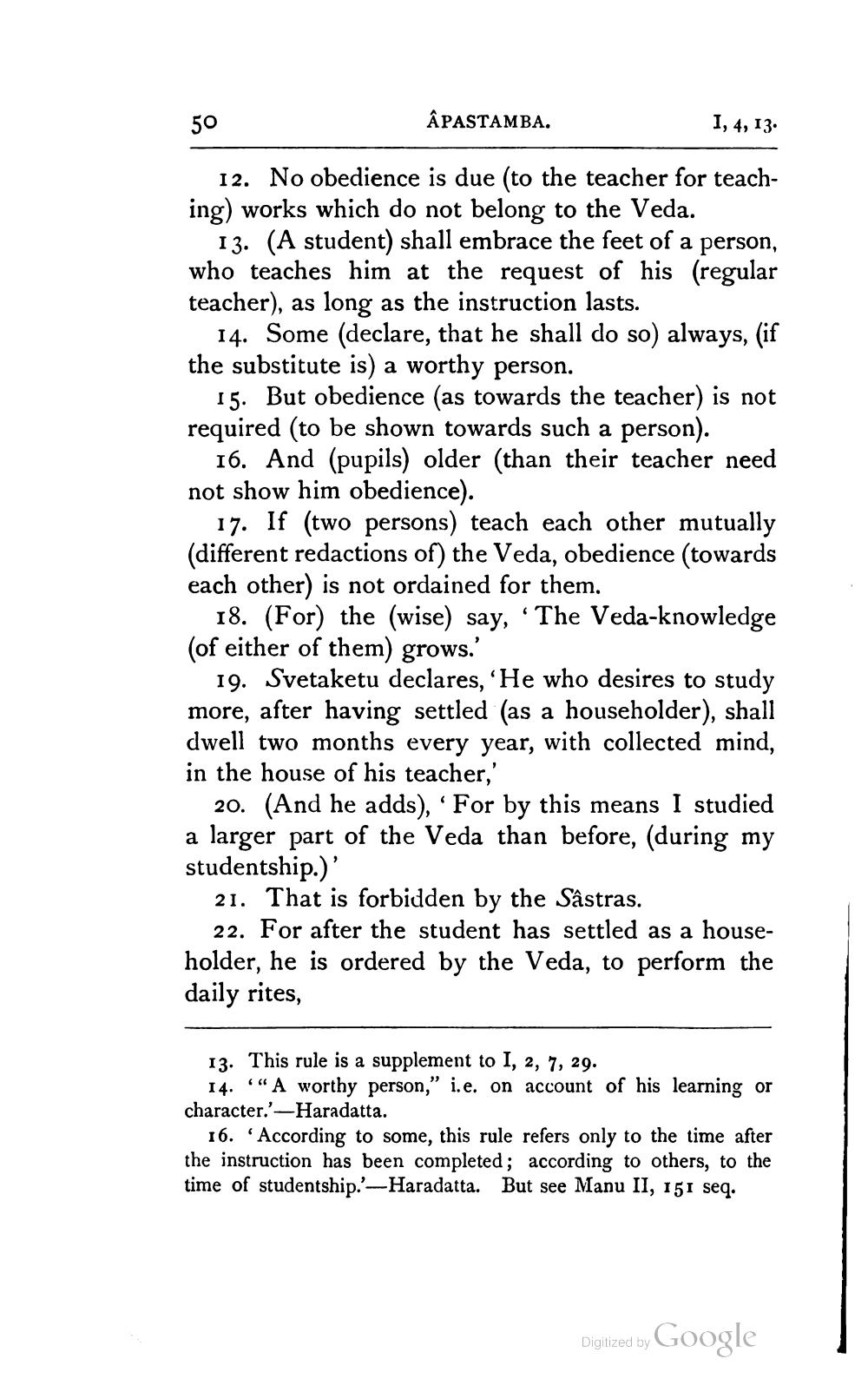________________
ÂPASTAMBA.
12. No obedience is due (to the teacher for teaching) works which do not belong to the Veda.
13. (A student) shall embrace the feet of a person, who teaches him at the request of his (regular teacher), as long as the instruction lasts.
50
I, 4, 13.
14. Some (declare, that he shall do so) always, (if the substitute is) a worthy person.
15. But obedience (as towards the teacher) is not required (to be shown towards such a person).
16. And (pupils) older (than their teacher need not show him obedience).
17. If (two persons) teach each other mutually (different redactions of) the Veda, obedience (towards each other) is not ordained for them.
18. (For) the (wise) say, 'The Veda-knowledge (of either of them) grows.'
19. Svetaketu declares, 'He who desires to study more, after having settled (as a householder), shall dwell two months every year, with collected mind, in the house of his teacher,'
20. (And he adds), ' For by this means I studied a larger part of the Veda than before, (during my studentship.)'
21. That is forbidden by the Sâstras.
22. For after the student has settled as a householder, he is ordered by the Veda, to perform the daily rites,
13. This rule is a supplement to I, 2, 7, 29.
14. "A worthy person," i. e. on account of his learning or character.'-Haradatta.
16. According to some, this rule refers only to the time after the instruction has been completed; according to others, to the time of studentship.'-Haradatta. But see Manu II, 151 seq.
Digitized by
Google




